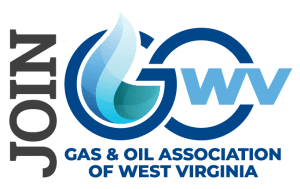Staying at Home in West Virginia
To prevent COVID-19 from spreading further, numerous communities and even entire states across the country have ordered their residents to stay
home.
West Virginians should already be taking such common-sense steps as limiting non-essential travel and maintaining social distancing.
West Virginia residents should now follow the rules of the “Stay-atHome” order issued by Gov. Jim Justice.
It is important to remember that this Stay at Home order:
Click button to view Governor Justice’s Entire “Stay At Home” Order
Essential business and operations – (full details are available in the Executive Order)
- Health care
- Hospitals
- Clinics
- Doctor’s offices
- Other medical practices including dental and eye care
- Pharmacies and over-the-counter drug retailers
- Substance use disorder and mental health services
- Home-based health and care providers
- Medical goods suppliers including eyewear and contact lens providers
- Organizations collecting blood, blood products and other needed materials
- Health insurance providers and managed care organizations
- Food
- Grocery stores
- Convenience stores
- Take-out and delivery restaurants
- Farmers markets
- Food bank and food pantries
- Take-out and delivery meal services, including school-based
- Agricultural operations
- Providers of livestock, seafood, baked goods and other food sources
- Livestock, farming and other agricultural feed and supply businesses
- Housing
- Hotels and motels
- Nursing homes and other long-term care facilities
- Residential facilities for people with intellectual or developmental disabilities
- Inpatient mental health and substance use disorder facilities
- Shelters for adults, seniors and children
- Animal shelters, kennels and rescue centers
- Public safety
- Police stations
- Fire stations
- Ambulance services
- 911 and emergency dispatch centers
- Correctional facilities and operations
- Hazardous materials responders
- Essential government functions
- Legislative function
- Judicial functions
- Programs and services that support essential operations and functions
- Hotlines or helplines, including for Medicaid, SNAP benefits, etc.
- Contacted services in support of government operations
- Human services
- Child protection and child welfare organizations
- Day care centers and homes
- Social services agencies and organizations
- Transportation
- Gas stations
- Public transit
- Road, rail and air services
- Shipping and delivery services
- Vehicle rental services
- Taxi and rideshare providers such as Uber and Lyft
- Auto dealers and repair services
- Essential infrastructure
- Utilities including water, sewer, and natural gas
- Coal-fired and other means of electrical generation
- Coal mining and production or distribution of other raw materials including oil
and natural gas - Hardware and supply stores
- Businesses that manufacture, produce, prepare, build, store, sell and distribute the materials and facilities needed to respond to this public health emergency
- Building, construction and other trades that support essential infrastructure
- Communications infrastructure and services, including media
- Cyber and other security operations and services
- Flood control and solid waste, recycling and sanitation collection and removal
- Firearm and ammunition suppliers and retailers
- Financial institutions
- Banks and credit unions
- ATM services
- Lending service
- Insurance providers
- Financial support services including appraisers, title companies and underwriters
- Other
- Schools and other educational institutions providing distance learning
- Places of worship
- Funeral homes and related services
- Legal, accounting and other professional services
- Laundromats, dry cleaners and laundry services
- Outdoor public spaces including parks and trails not specifically closed by
executive order

